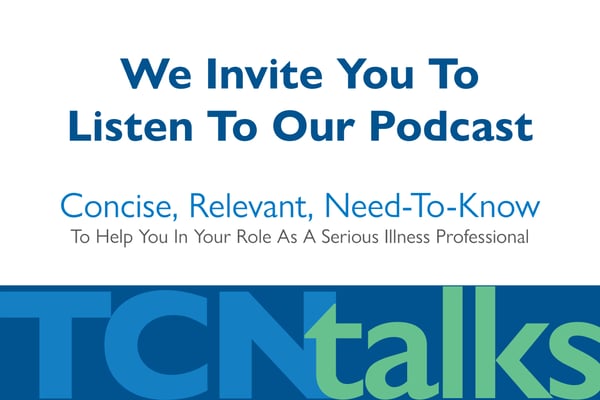
Happy Valentine’s Day!
I thought this was a good post to revisit because A) I am still asked about my mentors and B) Rudyard Kipling’s words resonate with me even more considering the challenges that Hospice organizations face today.
As we continue into a new year it is always a good time to reflect on our values and thought processes. I am often asked who was a key influencer in shaping how I think? Was there someone in my life who paid forward the wisdom of living with purpose, having a mission statement, defining my values, defining roles, and creating a vision statement?
The short answer is, like many of you, I am a product of hundreds of people – those who have influenced me both directly and indirectly, both intentionally and unbeknownst to them. I am an avid reader and, whether those authors know it or not, I consider them mentors who have shaped and molded my thinking.
I have been blessed with several true mentors throughout my academic and professional careers, but the one who weighs heaviest on my mind is Mrs. Wyble, my sixth-grade teacher.
Mrs. Wyble was a kind and gracious woman. She, too, was an avid learner and loved challenging her students to learn at a challenging age – a time when most of us were more focused on friendships and a budding interest in romance than learning what the great thinkers had to say about life. But Mrs. Wyble was so passionate about learning that it became infectious, even to us pre-teens.
I was a pretty good student and did not get punished often. But those who did get punished did not have some inane task to fulfill – not with Mrs. Wyble. In her wisdom, she made even a punishment purposeful. If you were an offender, you were required to write a certain number of copies of Rudyard Kipling’s poem “If.”
I must admit, I was a little jealous some of my classmates were getting that extra learning, so I purposefully got myself in trouble and was assigned to copy the poem ten times. I’m so grateful I did that, because now, at the age of 52, I still carry a copy of this incredible poem with me.
The original poem was written in 1895, so I’ve included a more updated version here so that it speaks to all our readers.
If
If you can keep your head when all about you
Are losing theirs and blaming it on you,
If you can trust yourself when all doubt you,
But make allowance for their doubting too;
If you can wait and not be tired by waiting,
Or being lied about, don’t deal in lies,
Or being hated, don’t give way to hating,
And yet don’t look too good, nor talk too wise:
If you can dream—and not make dreams your master;
If you can think—and not make thoughts your aim;
If you can meet with Triumph and Disaster
And treat those two impostors just the same;
If you can bear to hear the truth you’ve spoken
Twisted by knaves to make a trap for fools,
Or watch the things you gave your life to, broken,
And stoop and build ’em up with worn-out tools:
If you can make one heap of all your winnings
And risk it on one turn of pitch-and-toss,
And lose, and start again at your beginnings
And never breathe a word about your loss;
If you can force your heart and nerve and sinew
To serve your turn long after they are gone,
And so hold on when there is nothing in you
Except the Will which says to them: ‘Hold on!’
If you can talk with crowds and keep your virtue,
Or walk with Kings—nor lose the common touch,
If neither foes nor loving friends can hurt you,
If all count with you, but none too much;
If you can fill the unforgiving minute
With sixty seconds’ worth of distance run,
Yours is the Earth and everything that’s in it,
And—which is more—you’ll be an adult my child!
While each line of the poem is incredibly impactful, several of them have stood out to me through the years. Invoking the importance of humility, Kipling implores us not to lose the common touch, even when we walk with Kings. We learn the art of resiliency through his beautiful picture of risking it all, but never breathing a word about our loss as we rebuild.
I’ve looked to each of these metaphors as a mentor – allowing their simplicity to teach me truths about not living in fear and having a bold vision and purpose for my life.
While there are countless others for whose wisdom I am grateful, I am truly indebted to Mrs. Wyble for the foresight she had to embed these simple but deep truths in my mind. As I consider what it’s like to now be influencing others, I realize the intention with which she taught. We must never take for granted the ability we have to influence others and the impact it may have on their future.
I encourage you to consider who it is that has shaped your life through teaching, mentorship, or the sharing of wisdom. If they are still in your life, make a point to let them know how they’ve impacted you. This would be a great way to celebrate Valentine’s Day. Often, sharing this with someone is as much of a blessing to them as the wisdom was that they shared with you. Make 2023 your best year yet.
Sincerely,
Chris Comeaux, President / CEO of Teleios Collaborative Network

Leadership Immersion
May 1-5, 2023
Register Now
Teleios University (TU)
Discover More
Register Today!

An organizational model that allows nonprofit hospices (Members) to leverage best practices, achieve economies of scale and collaborate
in ways that better prepare each agency to participate in emerging alternative payment models and advance
their charitable missions.
Related Posts
Mentors
Happy 2020!As we go into a new year and on the heels of the Cause and Purpose blog post, many of...
A Culture of Philanthropy
Over the years, I have spoken with many people including foundation directors, development...
Tackling the Information Blocking Rule! Enhancing Patient & Provider Access to EHI
Consider this – On April 6, you get a medical records request from a patient who asks for their...



